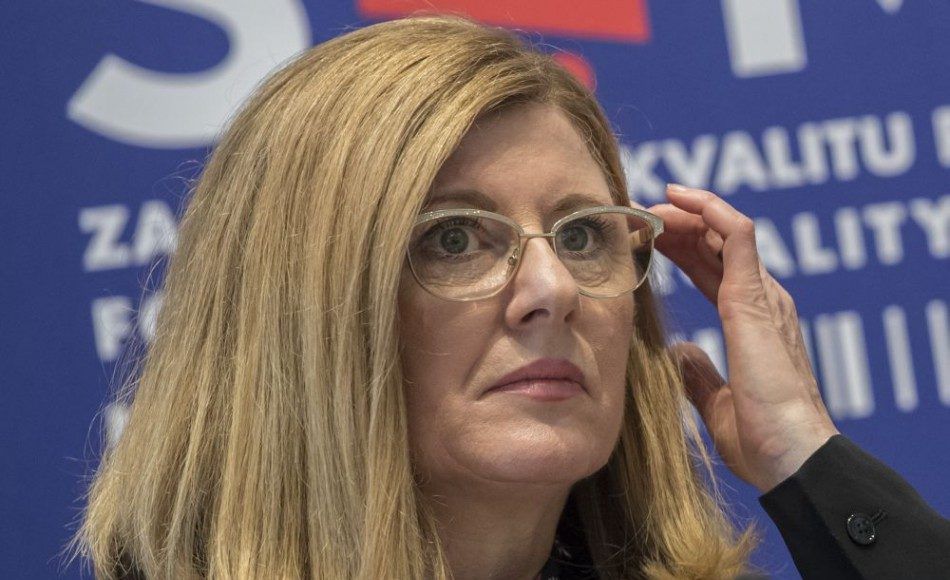Matecna: Very Difficult to Say When Double Food Standards Will Disappear

The question of how long double standards in food (and goods) quality will exist on the market is difficult to answer, said Agriculture and Rural Development Minister Gabriela Matecna (a Slovak National Party/SNS nominee) on RTVS’s political discussion programme ‘O pat minut dvanast’ (Five Minutes to Twelve) on Sunday.
According to Matecna, Friday’s (October 13) Bratislava summit on double standards set a two-year deadline within which the process should be concluded. “However, this view seems very optimistic to me, as the issue doesn’t concern only foodstuffs,” she said. According to Matecna, Friday’s (October 13) Bratislava summit on double standards set a two-year deadline within which the process should be concluded. “However, this view seems very optimistic to me, as the issue doesn’t concern only foodstuffs,” she said.
Former agriculture minister and current MP Zsolt Simon (Independent), who was also on the show, views double standards as a serious issue, as many supranational producers treat new member states as if they were home to second-class citizens. He’s concerned that equalising the quality of food in eastern and western Europe might result in price increases. He doesn’t believe that the problem will be resolved within two years.
In Simon’s opinion, it’s impossible to resolve the issue at the national level. Meanwhile, the issue doesn’t only concern food producers, but also entities placing foodstuffs on the market, i.e. retailers.
According to Matecna, the story of expensive butter globally and in Europe began in the USA, when the country found out that margarine isn’t as beneficial for health as was thought for a long time. “Butter consumption in the USA and around the world has thus started to grow,” she noted.
Simon sees a problem also in the fact that a strictly regulated commodity in the EU – butter – has become less so following the scrapping of milk quotas. “If the state fails to support breeders in Slovakia, dairy cow breeding farms will start disappearing,” he warned.
The law on renting farmland should prevent speculative land rentals and help small and medium-sized entrepreneurs involved in land cultivation, said Matecna. “We’re only putting things related to land rentals in order. We want landowners and users to be in an equal position [concerning rights],” stated the minister.
However, Simon thinks that the law on land rentals might damage large-scale farmers. He sees a problem in extensive fragmentation of farmland. The law on renting out farmland might bring chaos to land user relations, he added.



